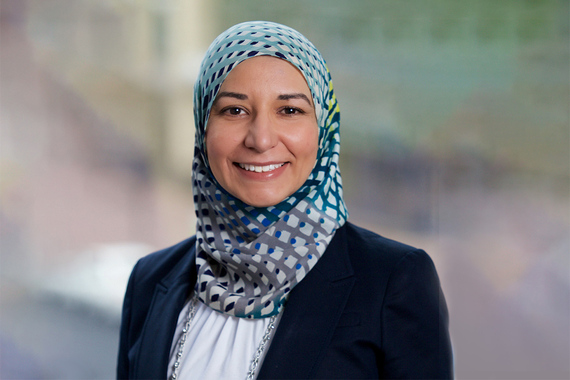For a long time, I struggled to define my life mission. I envied doctors and attorneys who could bring meaning to what they do on a daily basis by saving lives or serving the poor. When I began working in cybersecurity after several years of data science and data mining work, I finally found meaning in my work. I am literally protecting people's lives if I can secure medical devices. I am serving society if I contribute to securing our critical infrastructure.
How did I get there?
I grew up in a middle-class family in Tunisia. I went to elementary school on an island in the Mediterranean (Kerkennah) off the coast of Tunisia, and then I went to a boarding school in the capital (Tunis). I have two younger sisters. My dad was a public officer, and my mother was a stay-at-home mom. My parents were very encouraging and believed in me. My dad told me: "I know that you can do anything you set your mind to do. No field is too difficult for you to succeed in."
As a child, I enjoyed math at school. As a teenager, I was considering becoming a doctor. I felt like saving people's lives makes working as a doctor very rewarding. However, I also felt I'd be much more successful as an engineer, because of my good math and science skills.
While I did not plan to become a data scientist, I found myself drawn to that type of work during my first internship. While my undergraduate and my first graduate degree were in electrical engineering, I received an offer at the end of that internship to fill a data scientist position that they had created for me.
A mentor helped me make the transition into cybersecurity work. At the time, I was working full time while pursuing a Ph.D. focused on cybersecurity. My mentor encouraged me to quit work and focus on the Ph.D. program.
"Malek, if you are serious about this and would like to emerge as a thought leader in cybersecurity after you complete your Ph.D., you've got to quit," he told me.
I had challenges along the way as a woman in this field. I think one of the major obstacles is related to perception. I experienced that issue early in my career. During meetings where others assume that you are the executive assistant and don't take your technical opinion seriously or ignore it until a male colleague says it in his own words. I had to excel at everything to prove that I was more capable than my male colleagues and be taken seriously. I also started paying attention to how I communicate, making sure that I talk more assertively. (e.g. "I believe" instead if "I think"...).
I would advise young women to follow your passion; believe in yourself; and keep abreast of new technologies.
Why cybersecurity is my passion
Cybersecurity is becoming increasingly important as every business is growing into a digital business and offering client-centric products and services. Most of our communications and transactions are digital. These interactions are, therefore, dependent on digital trust, including trust in the identity of the party at the other end of the transaction, as well as trust in the ability of digital systems to conduct the transaction the way it was intended. It is also trust that our information will be protected. This digital trust, which is foundational to our digital economy and to our modern society, is dependent on cybersecurity and on the protection of our digital systems and assets as well as our information, reputation and privacy.
The proliferation of IoT (Internet of Things) devices raises the importance of cybersecurity to an even greater level. Think about all connected smart devices that are becoming ubiquitous throughout a broad range of our activities - we even have devices on or within our bodies, such as medical devices that dispense our medication. These devices will continue to be critical to our life and have to be protected from malicious adversaries. Cybersecurity is then not just critical to protect our information, critical infrastructure and digital economy. It is critical for protecting our very lives.
This importance is what motivates my research. I have been very fortunate to work on devising state-of-the-art security technologies through my DARPA (Defense Advanced Research Projects Agency) research work. DARPA funds revolutionary technologies as opposed to evolutionary ones, so it allows researchers to develop unconventional concepts and technologies that can introduce paradigm shifts in the way we protect our information, our systems, and our digital infrastructure. For instance, I have been working on using behavioral biometrics for authentication to allow a move away from the traditional password-based authentication methods that we rely upon today to prove identity on the cyberworld.
Cybersecurity, like many other fields, is increasingly data-driven. Data can be analyzed to detect intrusions, identify attacker motivations, or get insights into how systems and people are behaving.
Cybersecurity requires the brightest minds to come together to defeat cyber criminals.

